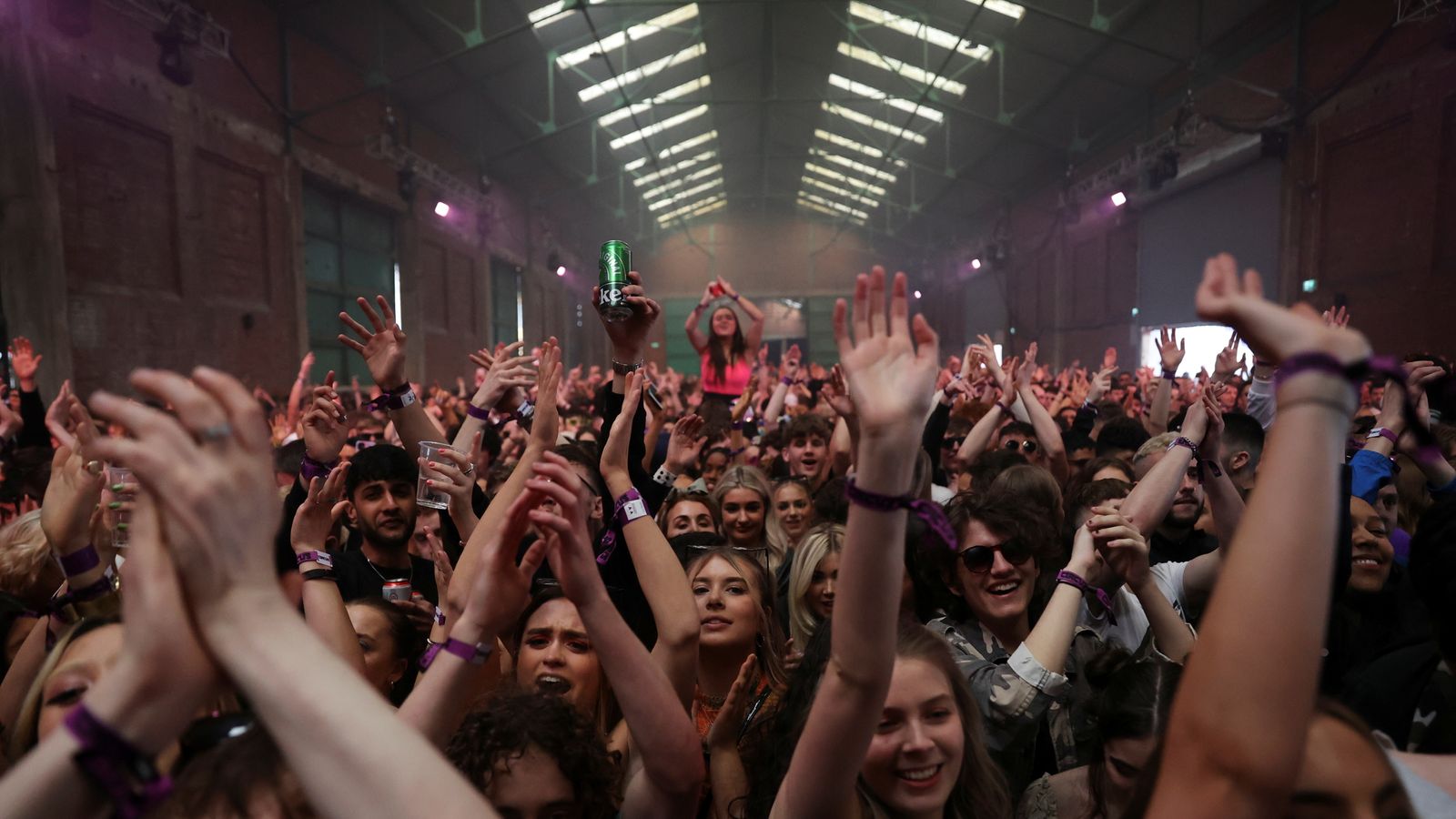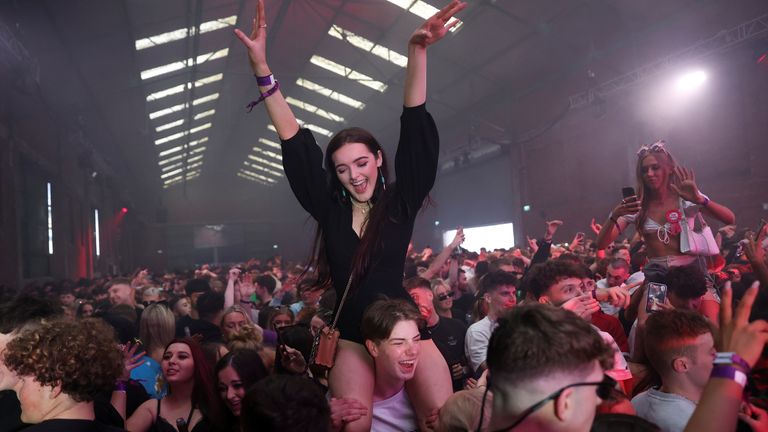Events without masks and social distancing are as safe as going to a shopping centre or eating in a restaurant, early reports appear to suggest.
Preliminary data, as seen by The Times, suggests that COVID-19 transmission can be significantly reduced at big events by the introduction of screening and improved ventilation, allaying fears that gigs, concerts and sports matches could cause serious coronavirus outbreaks.
It comes amid confusion and tension over the easing of the final lockdown restrictions in June, which are now being questioned following the appearance of yet another variant.
According to the paper, the results of the trials will be sent to ministers over the next few days, as they work out what to do in the next steps in the fight against COVID-19, with the pilot events being a key detail involved in the decisions.
A decision about fully reopening the economy is due to be made next month, but there are fears the date could be pushed back in light of the new variant.
A government source told The Times that the data was “encouraging”, adding: “It will help make the case that these large events are not inherently more risky than other parts of the hospitality sector.
“It shows that there are things that you can do to make these settings as safe as other daily activities.
“It is true that they are not going to be 100% safe but you can lower the risk to a reasonable level.”
The government has spent the last month or so hosting COVID trial events, which have included a nightclub in Liverpool, three FA Cup matches at Wembley Stadium, the World Snooker Championships in Sheffield and the Brit Awards in London’s O2.
Subscribe to the Daily podcast on Apple Podcasts, Google Podcasts, Spotify, Spreaker
People at the events were not required to wear masks or exercise social distancing, but they were however made to prove they had recently tested negative for coronavirus, and take subsequent tests afterwards, to track the outcomes from the gatherings.
Sky News has reached out the the Department for Digital, Culture, Media and Sport, which led the trials, for more information.


